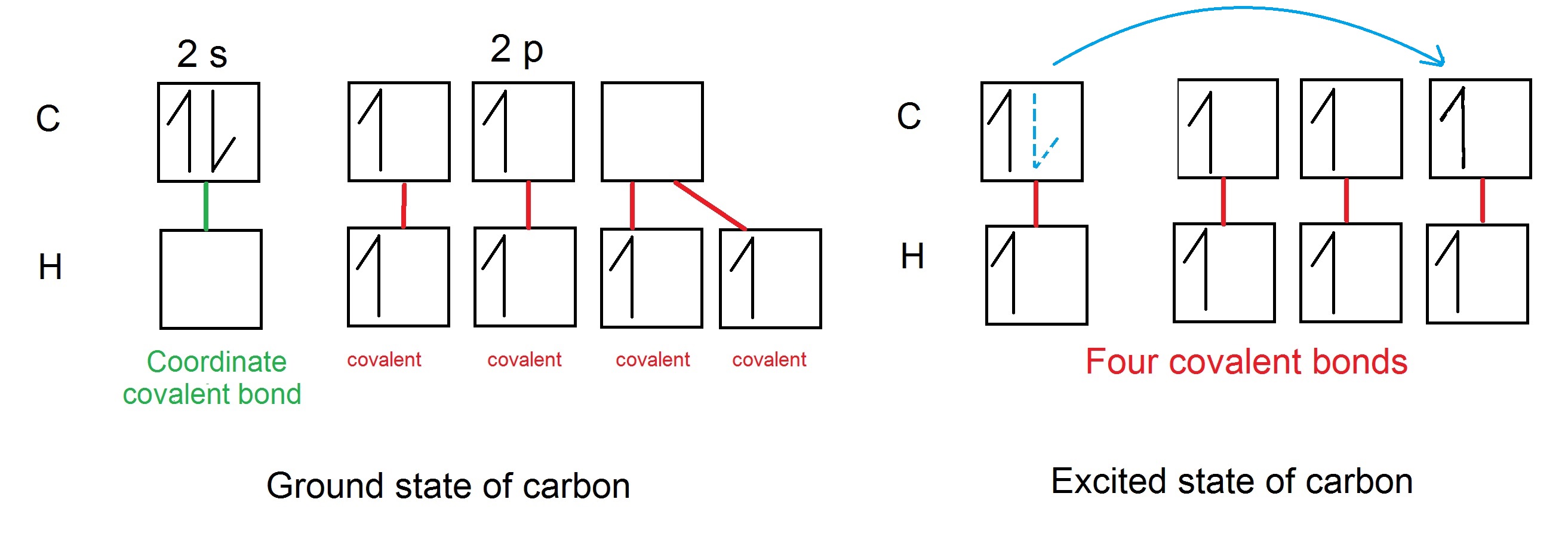Can we bind a fifth hydrogen to a carbon atom if carbon is not in excited state?
We have a big discussion in class and cannot clearly answer the question. If carbon atom excites an electron from $2\text{s}$ orbital to $2\mathrm{p^3}$ orbital, it can covalently bind four hydrogens each with one electron. In this case the $\ce{CH5^+}$ couldn't be created.
But what if carbon atom stays in its ground state so that there will be $2$ electrons in its s-orbital and $2$ electrons in its p-orbital? We discuss that then four hydrogens (each with one electron) could bind to carbon covalently, filling its p-orbitals, and the fifth hydrogen nucleus (without any electron) would bind to carbon s-orbital via coordinate bond.
Is it possible that two hydrogen atoms (each with one electron) would fill one vacant (plain) orbital of other element, e.g. carbon, and thus bind to it?

